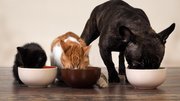News
Keurigs Laughing Man Coffee And Hugh Jackman Inspire Consumers to Make Every Cup Count In Support Of Coffee Farming Communities
WATERBURY, VT -- Laughing Man Coffee , a Keurig Green Mountain brand, has refreshed its packaging and launched a new marketing campaign, "Make Every Cup Count," to communicate its mission to deliver premium coffee and give back to the farmers who produce it. Laughing Man Coffee has unveiled an updated logo, revamped brand packaging, a new recyclable K-Cup format, and expanded availability and varieties, which now include Hugh's Blend, Dukale's Blend, Colombia Huila and Ethiopia Sidama. All four varieties...
March 15, 2018
WATERBURY, VT -- Laughing Man Coffee, a Keurig Green Mountain brand, has refreshed its packaging and launched a new marketing campaign, "Make Every Cup Count," to communicate its mission to deliver premium coffee and give back to the farmers who produce it.
Laughing Man Coffee has unveiled an updated logo, revamped brand packaging, a new recyclable K-Cup format, and expanded availability and varieties, which now include Hugh's Blend, Dukale's Blend, Colombia Huila and Ethiopia Sidama. All four varieties are made from 100% Fair Trade Certified arabica coffee that is harvested by hand.
All Laughing Man coffee pods in new packaging are made with polypropylene #5 plastic, which is widely recyclable curbside throughout North America.
For 30 days beginning Mar. 12, every purchase of bag coffee and K-Cups will result in a double donation to the Laughing Man Foundation and its efforts to support coffee-growing communities around the world.
Laughing Man Coffee, part of the Keurig Green Mountain Inc. family of brands, was founded in 2011 by award-winning actor Hugh Jackman following a trip to Ethiopia where he met a young coffee farmer named Dukale. Inspired by his perseverance and optimism, Jackman launched Laughing Man Coffee to help improve the lives of coffee farmers.
Jackman contributes 100% of his profits to the Laughing Man Foundation, an organization he created to support coffee farming communities and deploy programs that clear the way to health, growth and success for coffee farmers and their families. Investments are made in community-based programs, such as infrastructure, education and housing programs to complement the Fair Trade premium that farmers receive.
 ChatGPT
ChatGPT Grok
Grok Perplexity
Perplexity Claude
Claude






